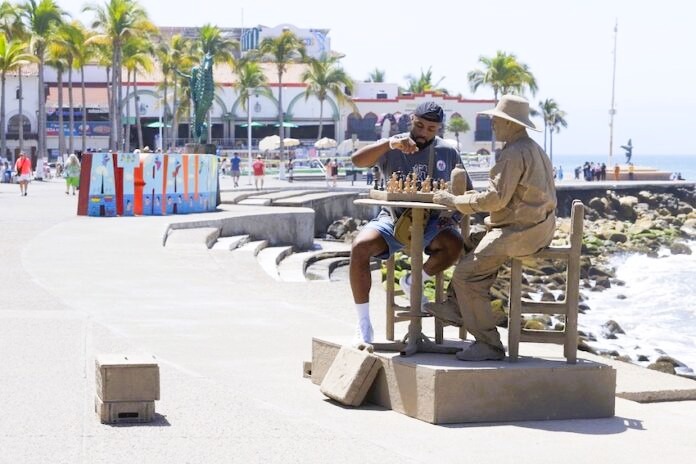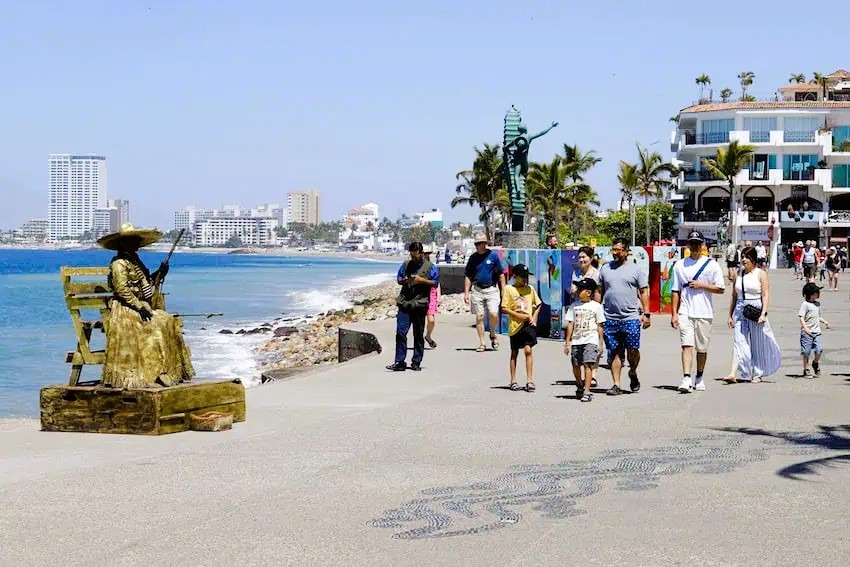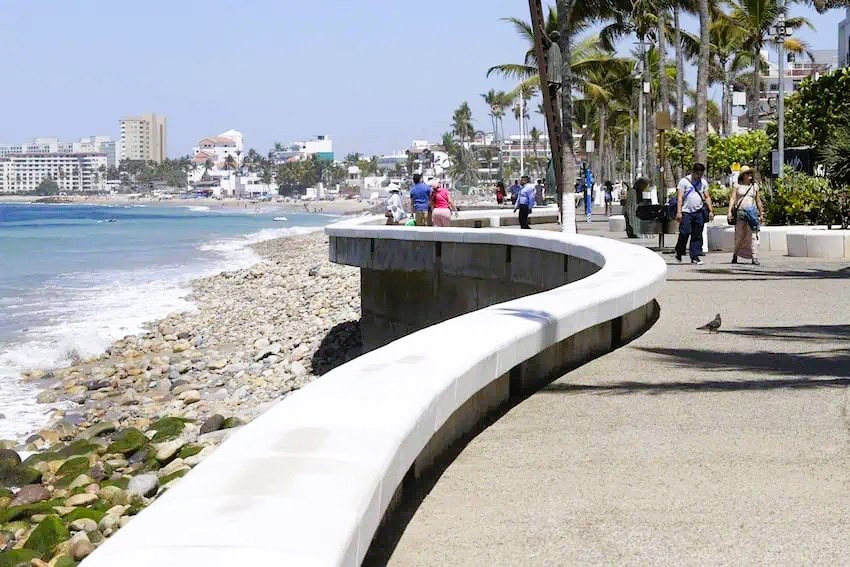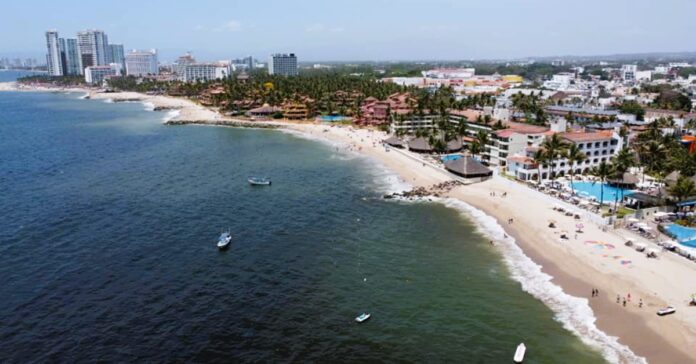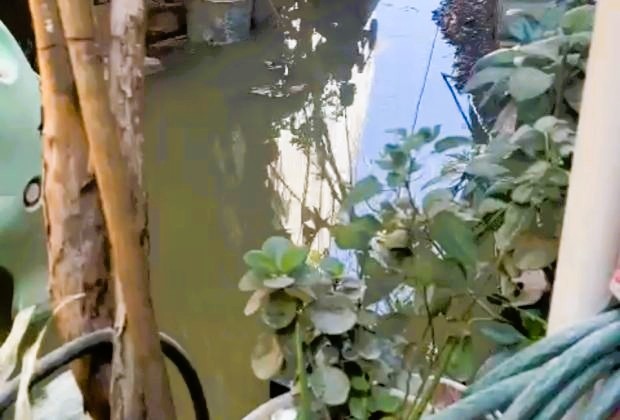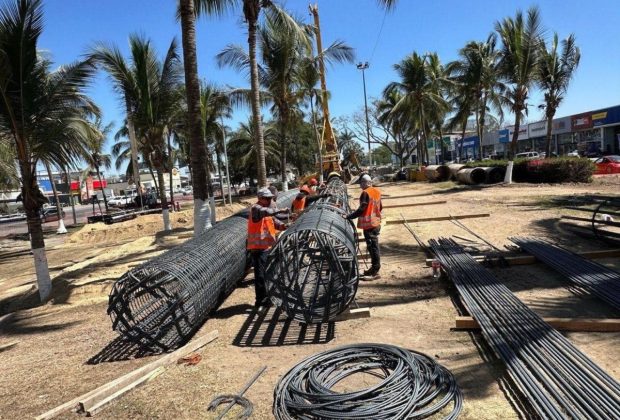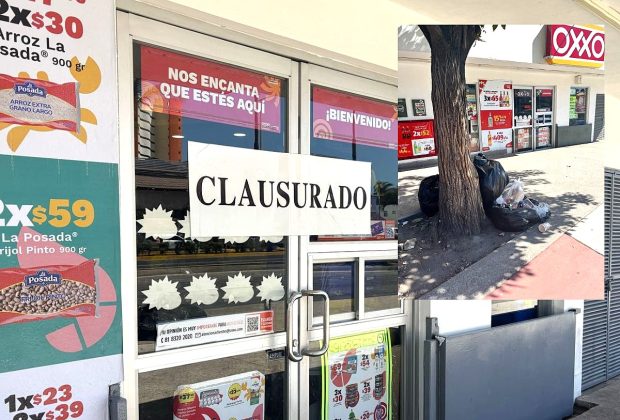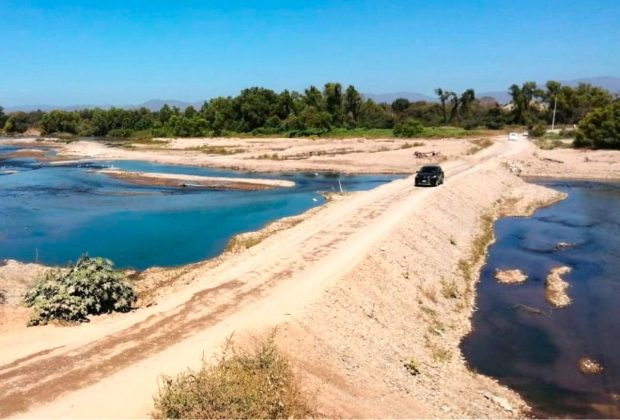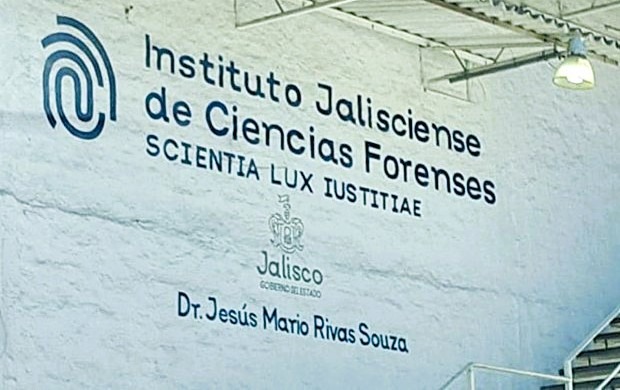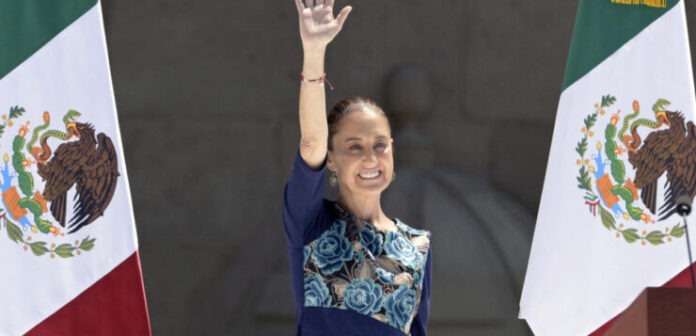Dear friends, Representatives of the Legislative Branch, governors, municipal, state and federal public servants, representatives of indigenous and Afro-descendant communities, farmworkers, businessmen, migrant sisters and brothers—friends all.
We are gathered once again in this beautiful square, the political heart of the United Mexican States. I made a commitment to you that there would never be a divorce between the people and the government. I said that we are one, that we are a government of the people, by the people and for the people, that whenever we had to report or face any adversity, we would do so together, with you, and together honor our commitments. Here we are together, people and government, and we will never, never separate, that is our reason for being, and our strength.
Besides, we come from this great movement of the people, we were formed in the public square and here we are with you, in the public square, in this radiant Zócalo.
On this occasion, and by the strength of the people of Mexico, we gather to congratulate ourselves, because in the relationship with the United States, with your government, dialogue and respect prevailed, and the tariffs or tariffs that were being applied to products that we export to the neighboring country were lifted. This, I repeat, is an achievement of all of us.
As you well know, today’s assembly was called in case we did not reach an agreement, with the objective of announcing a strategy and actions that we had prepared months in advance. Fortunately, dialogue and, above all, respect between our nations has prevailed.
We have always expressed with conviction: Mexico is a great country with a dignified and courageous people. We are nations in equal circumstances, we are not more, but neither are we less. And we will always put above all else, respect for our beloved people and our blessed nation.
It is important that we review the events of these last few weeks. A little over a month ago, the United States government had announced the unilateral application of tariffs—that is, taxes—on Mexican exports, using as an argument the importation of drugs from Mexico to the United States, in particular a very addictive drug that unfortunately has caused many deaths in our country: fentanyl.
On that first occasion, with dialogue and agreements, we achieved a month’s pause. Once that month had passed, despite the fact that we had high-level dialogue with Secretaries of State from both countries, on March 4, tariffs were applied—25% taxes on exports from Mexico to the United States. At that time, I decided to convene this assembly to inform them and, at the same time, continue appealing for dialogue.
And fourth: “With the people, everything; without the people…”
ATTENDEES: “…nothing!”
PRESIDENT CLAUDIA SHEINBAUM PARDO: With that in mind we must continue under the following strategy:
- Strengthening the domestic market. That means continuing to increase the minimum wage and the welfare of our people.
- Expand self-sufficiency in basic foodstuffs and energy. To produce in Mexico what we consume in Mexico, the main thing.
- Promote public investment to boost job creation. The construction of trains from Mexico to Nuevo Laredo and Mexico to Nogales is already underway this month and next month. Highways, water works, social benefits and a million homes for the people of Mexico to which we committed ourselves.
- Promote national production for the domestic market with Plan Mexico, and
- Strengthen the foundation of our project. The Welfare Programs: Pension for the Elderly, scholarships, Support for People with Disabilities, Sembrando Vida, Production for Well-Being, Free Fertilizers. And the three new programs: Support for all women from 60 to 64 years of age, scholarships for all public school children, and the House by House Health Welfare Program.
- Now, we have to thank deputies and senators because most of the Welfare Programs are already in the Constitution and are rights of the people of Mexico.Today is an act of unity, but not to forget that, because it is already in the Constitution, we must remember that: On June 1st there are elections! And that, for the first time in history, the people of Mexico will elect judges, magistrates and ministers of the Supreme Court of Justice of the Nation.My friends, it has been demonstrated that love of country truly calls. We have shown that the people of Mexico are made of many parts, and that together we are more, we do more and we go further. And here in the public square, in the heart of the Republic, we will always say with pride and love: Mexico is a free, independent, sovereign and democratic country. Our strength is the people, our motive is the welfare of the people, our mission is to serve the people and the homeland. Rest assured that your President, with courage and heart, will never betray you and that I will always put my heart, mind, energy and even my life for our dear and beloved Mexico.
Long live the people of Mexico!
ATTENDEES: Long live!
We must also emphasize that the economies of Mexico and the United States are very integrated and that any change will produce imbalances in both countries. On the other hand, we are in the best moment to make our region the most important in the world and thus compete with other regions.
The vast majority of companies that export goods to our neighboring country are American, and a recent study explains that U.S. companies that invest in Mexico become more productive, which means that for every 131 jobs they generate in our country, 333 jobs are generated in the United States.
So it is necessary to strengthen our economic relationship while respecting our sovereignty, instead of confronting each other. As I have mentioned on several occasions: we do not compete, we complement each other, thereby strengthening our economies and the well-being of our peoples.
Since the signing of the U.S.-Mexico-Canada Treaty, it was conceived that this was the only option to successfully face the competition posed by the economic and commercial progress of Asian countries. We have also proposed the economic and commercial integration of the entire continent, making us the most powerful region in the world without exclusions, with prosperity and with respect for the freedom, independence and sovereignty of all peoples and nations.
Today I would like to thank the businessmen and businesswomen who, with a sense of patriotism and social responsibility, have been supporting us in these crucial moments.
In any case, we mainly thank the unity and courage of the people of Mexico; in any case, Mexico must continue to strengthen its economy based on the principle of Mexican Humanism. The one that comes from below, the one made possible by President Andrés Manuel López Obrador. It was amply demonstrated that watering the economy from above generates poverty and inequality. On the other hand, when watered from below, Mexico flourishes.
We will continue to work with four maxims:
The first: “For the good of all…
ATTENDEES: “…first the poor!”
PRESIDENT CLAUDIA SHEINBAUM: The second: There can be no rich government…
ATTENDEES: “…with poor people!”
PRESIDENT CLAUDIA SHEINBAUM: The third: Healthy food, education, health, housing and fair wages are rights of the people of Mexico, they are not commodities or privileges.
And we have not forgotten our core belief: Peace and security are the fruit of justice.
Likewise, Mexico has developed a strategy to address ongoing migration attempts without violating human rights, starting with the right to life. Here we insist also that the most humane way to address this phenomenon is to promote development so that people do not feel the need to migrate out of necessity.
Look, fewer and fewer Mexicans are migrating to the United States, and that is because the economic situation in the country is getting better and better. Let us remember that President López Obrador reduced poverty for more than 9 million Mexicans, and we continue to apply the same humanist principle: “For the good of all…”
ATTENDEES: “First the poor!”
PRESIDENT CLAUDIA SHEINBAUM: We will never forget that one of the consequences of the imposition of the neoliberal model in our country was the massive expulsion of population from their places of origin, the loss of jobs in an industry that was deliberately dismantled in Mexico, which caused the largest migratory flow of economic refugees in our history.
Millions of compatriots crossed the Rio Grande in search of employment. They suffered discrimination, persecution—though it must also be said, solidarity—from many Americans. It must also be said that if they found jobs there, they were needed.
Thus, there are about 38 million Mexicans living in the United States—listen to this—of which two-thirds are born in the United States and the other third, born in Mexico, mostly have residency papers because they have been on the other side of the border for many years.
They, our countrymen and women, contribute to Mexico’s economy by supporting their families: 64 billion dollars in remittances in 2024. Mexico is a supportive people with supportive families; we never forget our families, our Mexico, no matter how far away we are.
But it is important to say that 80% of what is sent back to Mexico contributes in a fundamental way to the economy of the United States.
Our fellow countrymen and countrywomen there produce in the fields, in services, in factories, in science, in culture, in all areas of the productive life of the United States. From here we send an affectionate and fraternal embrace to all our sisters and brothers who live on the other side of the border, heroes and heroines of the homeland!
Now, look at these numbers: nearly 23 million Americans visit Mexico each year, and it is estimated that more than one million Americans live here in our country. So we are destined to have a good relationship of friendship and cooperation.
For humanitarian reasons, Mexico will continue to cooperate to prevent fentanyl from reaching young Americans and to support their families. Furthermore, as I have said, not only do we not want this drug to reach young people in the United States, but we do not want it to reach any part of the world or young Mexicans.
In this regard, I inform you, as I did a few days ago that, according to U.S. Customs and Border Protection, between October 2024 and January 2025 fentanyl crossing from Mexico to the United States decreased by 50%, and from January to February 2025 by another 41%. This is thanks to the seizures made by the Mexico Secretariat of Security and Citizen Protection, and the Armed Forces in Mexico, to whom we owe a huge round of applause.
Now, it is essential, with great respect, to emphasize that drug consumption must be addressed at the root of addiction with prevention and care—supporting young people with education, sports, values, closeness with families and educational and informational campaigns. For this reason, we are grateful that President Trump has recognized the campaign we are carrying out in Mexico and has taken it to the United States of America. It is not only a matter of security, but above all, it is a matter of well-being, love and values.
I would also inform you that, just as we cooperate in this area, we have consistently raised with the United States government the need to take action to stop the flow of high-powered weapons into our territory.
The strategy to prevent the crossing of drugs into the United States is part of the strategy we have proposed to achieve peace and security in our country:
- Addressing root causes. We do not want any young person to consider joining a criminal group as a means to make a life—it is only a means of death. To young Mexicans, we offer education, culture, sports, hugs and love.
- More and better-trained National Guard. This great institution, formed by President Andrés Manuel López Obrador, today under the leadership of the Secretary of National Defense, is being strengthened and expanded.
- Intelligence and investigation. To this end, we are strengthening all institutions in this area.
- Coordination. Coordination between the Security Cabinet and the Attorney General’s Office. We appreciate the presence of the prosecutor and all the support he has given to reverse the situation of insecurity in different parts of the country. Coordination with the states of the Republic, with each governor, coordination from the Federal Security Cabinet; and coordination and support, above all, with the people of Mexico.
This is the strategy.
I am here giving you information we had planned to announce at Tuesday’s morning press conference: We have reduced intentional homicides throughout the country by almost 15%!
And we have not forgotten our core belief: Peace and security are the fruit of justice.
Likewise, Mexico has developed a strategy to address ongoing migration attempts without violating human rights, starting with the right to life. Here we insist also that the most humane way to address this phenomenon is to promote development so that people do not feel the need to migrate out of necessity.
Look, fewer and fewer Mexicans are migrating to the United States, and that is because the economic situation in the country is getting better and better. Let us remember that President López Obrador reduced poverty for more than 9 million Mexicans, and we continue to apply the same humanist principle: “For the good of all…”
ATTENDEES: “First the poor!”
PRESIDENT CLAUDIA SHEINBAUM: We will never forget that one of the consequences of the imposition of the neoliberal model in our country was the massive expulsion of population from their places of origin, the loss of jobs in an industry that was deliberately dismantled in Mexico, which caused the largest migratory flow of economic refugees in our history.
Millions of compatriots crossed the Rio Grande in search of employment. They suffered discrimination, persecution—though it must also be said, solidarity—from many Americans. It must also be said that if they found jobs there, they were needed.
Thus, there are about 38 million Mexicans living in the United States—listen to this—of which two-thirds are born in the United States and the other third, born in Mexico, mostly have residency papers because they have been on the other side of the border for many years.
They, our countrymen and women, contribute to Mexico’s economy by supporting their families: 64 billion dollars in remittances in 2024. Mexico is a supportive people with supportive families; we never forget our families, our Mexico, no matter how far away we are.
But it is important to say that 80% of what is sent back to Mexico contributes in a fundamental way to the economy of the United States.
Our fellow countrymen and countrywomen there produce in the fields, in services, in factories, in science, in culture, in all areas of the productive life of the United States. From here we send an affectionate and fraternal embrace to all our sisters and brothers who live on the other side of the border, heroes and heroines of the homeland!
Now, look at these numbers: nearly 23 million Americans visit Mexico each year, and it is estimated that more than one million Americans live here in our country. So we are destined to have a good relationship of friendship and cooperation.
We must also emphasize that the economies of Mexico and the United States are very integrated and that any change will produce imbalances in both countries. On the other hand, we are in the best moment to make our region the most important in the world and thus compete with other regions.
The vast majority of companies that export goods to our neighboring country are American, and a recent study explains that U.S. companies that invest in Mexico become more productive, which means that for every 131 jobs they generate in our country, 333 jobs are generated in the United States.
So it is necessary to strengthen our economic relationship while respecting our sovereignty, instead of confronting each other. As I have mentioned on several occasions: we do not compete, we complement each other, thereby strengthening our economies and the well-being of our peoples.
Since the signing of the U.S.-Mexico-Canada Treaty, it was conceived that this was the only option to successfully face the competition posed by the economic and commercial progress of Asian countries. We have also proposed the economic and commercial integration of the entire continent, making us the most powerful region in the world without exclusions, with prosperity and with respect for the freedom, independence and sovereignty of all peoples and nations.
Today I would like to thank the businessmen and businesswomen who, with a sense of patriotism and social responsibility, have been supporting us in these crucial moments.
In any case, we mainly thank the unity and courage of the people of Mexico; in any case, Mexico must continue to strengthen its economy based on the principle of Mexican Humanism. The one that comes from below, the one made possible by President Andrés Manuel López Obrador. It was amply demonstrated that watering the economy from above generates poverty and inequality. On the other hand, when watered from below, Mexico flourishes.
We will continue to work with four maxims:
The first: “For the good of all…
ATTENDEES: “…first the poor!”
PRESIDENT CLAUDIA SHEINBAUM: The second: There can be no rich government…
ATTENDEES: “…with poor people!”
PRESIDENT CLAUDIA SHEINBAUM: The third: Healthy food, education, health, housing and fair wages are rights of the people of Mexico, they are not commodities or privileges.
And fourth: “With the people, everything; without the people…
ATTENDEES: “…nothing!”
And we have not forgotten our core belief: Peace and security are the fruit of justice.
Likewise, Mexico has developed a strategy to address ongoing migration attempts without violating human rights, starting with the right to life. Here we insist also that the most humane way to address this phenomenon is to promote development so that people do not feel the need to migrate out of necessity.
Look, fewer and fewer Mexicans are migrating to the United States, and that is because the economic situation in the country is getting better and better. Let us remember that President López Obrador reduced poverty for more than 9 million Mexicans, and we continue to apply the same humanist principle: “For the good of all…”
ATTENDEES: “First the poor!”
PRESIDENT CLAUDIA SHEINBAUM: We will never forget that one of the consequences of the imposition of the neoliberal model in our country was the massive expulsion of population from their places of origin, the loss of jobs in an industry that was deliberately dismantled in Mexico, which caused the largest migratory flow of economic refugees in our history.
Millions of compatriots crossed the Rio Grande in search of employment. They suffered discrimination, persecution—though it must also be said, solidarity—from many Americans. It must also be said that if they found jobs there, they were needed.
Thus, there are about 38 million Mexicans living in the United States—listen to this—of which two-thirds are born in the United States and the other third, born in Mexico, mostly have residency papers because they have been on the other side of the border for many years.
They, our countrymen and women, contribute to Mexico’s economy by supporting their families: 64 billion dollars in remittances in 2024. Mexico is a supportive people with supportive families; we never forget our families, our Mexico, no matter how far away we are.
But it is important to say that 80% of what is sent back to Mexico contributes in a fundamental way to the economy of the United States.
Our fellow countrymen and countrywomen there produce in the fields, in services, in factories, in science, in culture, in all areas of the productive life of the United States. From here we send an affectionate and fraternal embrace to all our sisters and brothers who live on the other side of the border, heroes and heroines of the homeland!
Now, look at these numbers: nearly 23 million Americans visit Mexico each year, and it is estimated that more than one million Americans live here in our country. So we are destined to have a good relationship of friendship and cooperation.
With that in mind we must continue under the following strategy:
- Strengthening the domestic market. That means continuing to increase the minimum wage and the welfare of our people.
- Expand self-sufficiency in basic foodstuffs and energy. To produce in Mexico what we consume in Mexico, the main thing.
- Promote public investment to boost job creation. The construction of trains from Mexico to Nuevo Laredo and Mexico to Nogales is already underway this month and next month. Highways, water works, social benefits and a million homes for the people of Mexico to which we committed ourselves.
- Promote national production for the domestic market with Plan Mexico, and
- Strengthen the foundation of our project. The Welfare Programs: Pension for the Elderly, scholarships, Support for People with Disabilities, Sembrando Vida, Production for Well-Being, Free Fertilizers. And the three new programs: Support for all women from 60 to 64 years of age, scholarships for all public school children, and the House by House Health Welfare Program.
- Now, we have to thank deputies and senators because most of the Welfare Programs are already in the Constitution and are rights of the people of Mexico.Today is an act of unity, but not for that reason, because it is already in the Constitution, we must remember that: On June 1st there are elections! And that, for the first time in history, the people of Mexico will elect judges, magistrates and ministers of the Supreme Court of Justice of the Nation.My friends, it has been demonstrated that love of country always calls. We have shown that the people of Mexico are made of many parts, and that together we are more, we do more and we go further. And here in the public square, in the heart of the Republic, we will always say with pride and love: Mexico is a free, independent, sovereign and democratic country. Our strength is the people, our motive is the welfare of the people, our mission is to serve the people and the homeland. Rest assured that your President, with courage and heart, will never betray you and that I will always put my heart, mind, energy and even my life for our dear and beloved Mexico.
Long live the people of Mexico!
ATTENDEES: Long live!


